The Best Cargo Carriers and Roof Boxes for Your Car

If you need more cargo carrying capacity for your car, there are a lot of practical options for you that can be installed right on your car’s roof. When looking for the best roof cargo carrier, you need to first figure out what kind of cargo you’re going to be carrying. Not all cargo carriers are the same and there are different products out there for different purposes: there are travel bags, roof baskets, and cargo boxes.
We update this list regularly, and we’ve found that cargo carriers frequently go in and out of stock so if you see a model you like, you should buy it while it’s available.
Cargo carrier bags are the lightest, least expensive, and easiest to remove, and don’t usually require any hardware other than straps. They’re good for stuffing things into, and some models are available with fitted duffel bags to make packing easier. Hard sided cargo boxes protect your items from weather and are theft resistant, and must be mounted to existing rails or crossbars. Roof baskets are heavy-duty all-purpose carriers. These sturdy metal car rooftop cargo containers are also attached to existing roof bars and are good for odd-sized, and wet and dirty items.
They all have their own strengths and weaknesses, but with are few exceptions are mounted on a roof rack or roof rails. The following options are among the best cargo carriers, roof boxes, and roof baskets you can buy. Make sure you pick the right one for your specific needs.
Table of contents
- 1. Editor's Pick: SportRack Vista XL Cargo Box
- Promoted Product: RoofPax Rooftop Cargo Carrier
- 2. Top Seller: Fivklemnz Rooftop Cargo Carrier Bag
- 3. Best Storage Bag: RoofBag Cargo Carrier Bag
- 4. Most Versatile: ROOF MASTER Rooftop Cargo Carrier
- 5. Best for Storage: Thule Sidekick Cargo Box
- 6. Best on a Budget: Amazon Basics Rooftop Cargo Carrier Bag
- 7. Most Premium: Thule Force XT Rooftop Cargo Box
- 8. Best for Camping Gear: Yakima LoadWarrior
- 9. Best for Sporting Equipment: Thule Pulse Cargo Box
- 10. ARKSEN Universal Roof Rack
- Everything You Need to Know About Cargo Carriers
- Advantages of Roof Bags
- Disadvantages of Roof Bags
- Advantages of Rooftop Baskets
- Disadvantages of Roof Baskets
- Advantages of Rooftop Boxes
- Disadvantages of Roof Boxes
- Advantages of Hitch-Mounted Cargo Carriers
- Disadvantages of Hitch-Mounted Cargo Carriers
- How Cargo Carriers Affect Gas Mileage
- Top Safety Tips when Traveling with Cargo Carriers
- 1. Weight Ratio
- 2. Equally Distributed Weight
- 3. Secured Load
- 4. Visibility
- 5. Tire Pressure Adjustments
- 6. Load Height
- 7. Using Extra Straps
- Recent Updates:
1. Editor's Pick: SportRack Vista XL Cargo Box
Our top recommendation is a heavy-duty cargo box from SportRack. The Vista XL is designed to fit on SportRack roof rack systems, as well as square, round, and most factory racks. Of course, we recommend checking the guide to make sure it’ll fit your specific vehicle prior to purchasing. If it does, you’re getting a rear-opening cargo box that offers up to 18 cubic feet of storage. It’s constructed from durable and UV-resistant ABS and has a maximum weight capacity of 100 pounds.
SportRack includes all the mounting hardware necessary for installation and removal, and no tools are needed to get this cargo box installed onto your roof for your next trip. Another nice feature is that it includes a key lock to secure the contents of the box if you’re taking a rest spot or grabbing a bite to eat. Best of all, once your trip is all done, simply clean it off with mild soap and water so it’ll last you for many more journeys ahead.
Pros | ABS construction, rear opening lid, built-in lock, easy to install and remove, 18 cubic feet of storage |
Cons | Some buyers say the hinges feel weak, box doesn't open very wide |
Promoted Product: RoofPax Rooftop Cargo Carrier
The RoofPax Rooftop Cargo Carrier is the best-reviewed option on Amazon, with an average rating of 4.6 out of 5 stars.
So why is this rooftop cargo carrier rated so highly? There are a number of reasons, but at the top of the list is safety. If you don’t have a roof rack, the RoofPax roof bag locks down with four rugged door hook straps rather than straps that go inside the car like on some other brands. Straps that go inside the car can interfere with your vehicle’s airbags and are illegal to use in some states. RoofPax even gives you a pair of extra door hook straps, just in case. And to help keep noise down, there are ten elastic Velcro strap restraints to prevent the straps from flapping in the wind.
Another reason for the high marks from owners is protection from the elements. The RoofPax rooftop cargo carrier is outfitted with double waterproof closing zippers, waterproof dual seam technology, and water-repellant double coating.
One more benefit of the RoofPax rooftop cargo carrier is an amazing warranty. All zippers and buckles have a lifetime warranty, while there is a five-year warranty on tears in the fabric.
There are four different versions of the RoofPax rooftop cargo carrier ranging from 15 to 23 cubic feet, so you can easily find exactly what you are looking for.
2. Top Seller: Fivklemnz Rooftop Cargo Carrier Bag
The Fivklemnz rooftop cargo carrier has proven to be incredibly popular with consumers looking for extra storage space. It offers up to 15 cubic feet of additional storage space, enough room to carry four to six suitcases.
Unlike hard shell carriers, when you aren’t using the Fivklemnz, it can be folded up and stored in the carry bag that comes with it. Once folded, it’s about the same size as a smaller backpack, so it’s easy to store.
The bag is made of 600D Oxford cloth and sports a waterproof zipper protected by a double flap that keeps the weather outside. The manufacturer boasts this is 100% waterproof and rainproof, so your stuff will stay dry.
When it comes time to install, the Fivklemnz cargo carrier comes with a non-slip protective mat, so you can use it even without a roof rack system and not have to worry about scratching up the roof of your vehicle. It also locks down with eight adjustable straps so everything stays safe and secure even at highway speeds.
Pros | 100% waterproof, simple installation, packs up small |
Cons | No lock comes with the zipper. Some users report that the straps can rip from the bag under stress |
3. Best Storage Bag: RoofBag Cargo Carrier Bag
The RoofBag Cargo Carrier Bag has a simple yet effective design. Manufactured in the U.S., these roof cargo carriers are 100-percent waterproof and feature Triple-Seal technology for maximum protection in extreme weather. Offering 15 cubic feet of storage, this option works on any vehicle with side rails, cross bars, or even without a roof rack. It uses a secure waterproof strap system with buckles for easy access.
Constructed from heavy-duty polyester that has been liquid-coated with vinyl on both sides, this cargo carrier does a fantastic job of resisting heat and cold. Easy and quick installation with plenty of storage, this is a versatile option for those on a budget.
Pros | Made with soft covers with waterproofing, easy to secure to the roof rack, made with heavy-duty straps which resist forces of up to 3000lbs |
Cons | Not best for aerodynamics |
4. Most Versatile: ROOF MASTER Rooftop Cargo Carrier
We understand not everyone has a roof rack on their vehicle, and if you’re one of those people, consider this rooftop cargo carrier from ROOF MASTER. We named it our most versatile pick for its ability to be used on vehicles with or without roof racks, although you’ll have to purchase the door hooks separately if you want to use it on a vehicle without a roof rack.
It offers up to 16 cubic feet of storage and uses extra wide straps with Duraflex buckles and a high friction mat to ensure it stays on your roof once it’s secured to your vehicle. This option is a soft-shell cargo carrier that is manufactured from military-grade Nylon Cordura fabric, which the company claims has five times the strength and wear resistance of high-grade PVC, which is often used on other cargo bags. Naturally it’s waterproof and is equipped with a waterproof zipper.
Pros | Can be used with or without roof racks, Nylon Cordura construction, Duraflex buckles, 16 cubic feet of storage |
Cons | Door hooks sold separately, provided straps may not be good enough |
5. Best for Storage: Thule Sidekick Cargo Box
If you are looking for a compact cargo carrier, the Sidekick Rooftop Storage Box is a practical solution. Made to meet the needs of travelers who want to avoid larger designs without sacrificing practicality, the cargo carrier is a top solution with its eight cubic-foot capacity. With a length of 48 inches, it will not cover the entire surface of the roof on most mid-sized cars, and it also won’t create too much wind resistance.
The carrier comes with a self-standing top lid (so you can load it easily) and a simple locking mechanism to keep your belongings safe. It is also durable, and it represents a solution that can be used in all seasons. Lightweight at under 20 pounds, many people will easily be able to install it themselves.
Pros | Made with a compact design, comes with an 8-cubic feet storage capacity, lightweight at less than 20 pounds, self-standing top design |
Cons | Expensive, small for sporting equipment |
6. Best on a Budget: Amazon Basics Rooftop Cargo Carrier Bag
In the past few years, Amazon’s own brand, Amazon Basics, has entered several markets by offering quality products at affordable prices. Its rooftop cargo carrier bag gets our nod if you’re shopping on a budget, offering up to 15 cubic feet of space. It’s a fairly basic offering, but is constructed from 100-percent waterproof material with a design that protects the carrier against grit, sun, rain, and wind.
With this option, you’ll find a zip closure (wraps halfway around the bag) with hook-and-loop flap to keep the inside contents completely dry, and the company says the zipper is waterproof. It features one-inch wide polypropylene straps to keep the bag attached to your carrier for safe transport. And since you’re not always using a cargo carrier bag, it’s nice to know Amazon Basics’ option folds compact for easy storage.
Pros | Waterproof design, protects against the environment, 15 cubic feet of space, affordable price |
Cons | Fairly basic option, isn't made from heavy duty materials |
7. Most Premium: Thule Force XT Rooftop Cargo Box
If you want the best of the best, Thule's Force XT Rooftop Cargo Box offers unparalleled quality and versatility. It starts with a dual opening design which lets you access the cargo carrier from either side of the car. Attachment is made easier with a torque-limiting PowerClick quick-mount system that doesn't let you over-tighten the box when attaching it to your crossbars.
As a premium car top carrier, the Thule offers not just locking security but a special LockKnob that makes it both easy to open and close and protects the key from damage. It has a massive 165-pound weight capacity, and the 22-cubic-foot XXL size is 90 inches long, 35.5 inches wide, and 18.5 inches tall—enough to fit up to seven pairs of skis or five snowboards.
The Thule Force XT Rooftop Cargo Box comes in 11-, 16-, 18-, and 22-cubic-foot sizes, and some sizes are available with a fitted four-piece Thule Gopack Duffel Set, too.
Pros | Available in different sizes to fit all cars, recommended for large amount or cargo or sports gear, versatile openings and universal attachment to crossbars |
Cons | Too big for one person to install easily |
8. Best for Camping Gear: Yakima LoadWarrior
Steel rooftop car carriers and car roof racks tend to be exposed to harsher conditions, and it makes sense to buy a high-quality one to reduce worries about rust and breakage. Yakima is a premium brand with a lifetime warranty, so you can just install and forget it. This heavy-duty cargo basket is rated for 140 pounds and measures 44 inches long x 39 inches wide x 6.50 inches high. At 25 pounds it weighs more than some other options, but it's also one of the best-built rooftop car carriers you can buy.
Carriers like this offer versatility that bags and boxes don't, as they will hold long and tall cargo. They're also a great place to strap dirty or wet things that you don't want to put in your trunk. This roof basket is a great option for carrying cargo, but it requires additional straps and cargo nets to make sure your load is secure. If you want even more space but don't want to upgrade to Yakima's huge MegaWarrior, you can even bolt in an 18-inch extension.
Pros | Durable metal construction, extension available for extra carrying capacity, easy to mount with universal locks for the crossbars, good aerodynamic performance |
Cons | Heavier than other basket options |
9. Best for Sporting Equipment: Thule Pulse Cargo Box
With a taller profile compared to the other Thule cargo boxes, the Pulse Cargo offers one of the best solutions for extra carrying space. It is available in 11, 14, and 15 cubic feet capacities and can be purchased as a set with four fitted Thule Gopack duffel bags. It is built to handle weights of up to 110 pounds in all versions and can even hold ski equipment, between four and eight pairs of skis, depending on the size of your Cargo Box.
With a self-standing lid design and an integrated anti-theft locking mechanism with keys, it is a practical solution for adventurous drivers who need a safe place to store their ski equipment. Made from ABS plastic, the Pulse Cargo Box is also a durable solution for people who will be driving in rainy or snowy conditions.
Pros | Great solution for skis or snowboards, available in 11, 14 and 15 cubic feet options, made with an anti-theft lock, durable ABS plastic construction, stand-up lid |
Cons | Heavy for its size |
10. ARKSEN Universal Roof Rack
With a universal design and metal construction, this luggage carrier is one of the simplest and most durable designs on the market. It represents a solution that is easy to use and even looks a bit retro. Made with a metal frame with a length of 43 inches and a width of 39 inches, the carrier is easy to store when not in use due to its compact size.
This roof basket is a great option for carrying cargo, but it requires additional straps and cargo nets to make sure your cargo is secure. However, they do offer combos with nets, bags, and even a fitted semi-rigid hard-sided Pro Cargo Bag. Larger 64- and 84-inch lengths are also available. This is a great option for drivers who don’t experience too much rain or snow.
Pros | Good aerodynamic performance, available in compact 43” in length, full metal construction for added durability |
Cons | Cargo nets and straps sold as upgrade kits |
Everything You Need to Know About Cargo Carriers
Cargo carriers are a practical method to transport your luggage and sporting goods and increase the cargo capacity of your car. They are installed on roof racks or hitches and they come in different shapes and sizes. The main purpose of a cargo carrier is to expand the load capacity of your car for items that might not fit inside.
Depending on the type of cargo you plan to carry, you can select a carrier that is specifically made for your needs. For example, if you want to carry lightweight items that can even be larger in volume such as sleeping bags, a roof bag can be all you need.
If you want to carry larger equipment that can be secured with bungee cords, you can select a rooftop basket. If you need increased carrying capacity for various objects and sports equipment, a rooftop box will work wonders. Rooftop boxes come in various shapes and sizes and most quality options are made with a built-in lock for extra security. If you do not have a roof rack to work with, a hitch-mounted cargo carrier can be an alternative. The main types of cargo carriers include:
- Roof bags
- Rooftop baskets
- Rooftop boxes
- Hitch-mounted cargo carriers
These options are made with their own strengths and weaknesses and there is a type of cargo carrier for every need and type of vehicle. There is a voluntary international ISO/PAS 11154 standard for roof racks and cargo carriers, you can check a manufacturer's website to see if they follow it. Many larger manufacturers also perform their own rigorous testing for durability and safety.
Advantages of Roof Bags
Roof bags are typically made from heavy-duty waterproof textiles. They can be easily mounted by a single person since they are not too heavy and they can come with a carrying capacity of around 15 cubic feet. The main advantages of roof bags include:
- A lightweight profile recommended for easy setup using securing straps
- Up to 16 cubic feet of extra carrying capacity
- Compatible with a large number of hatchbacks, SUVs, sedans and other vehicles
- Waterproof protection
- Softer materials recommended for objects that might be oddly shaped, such as musical instruments
- Can be folded easily or removed to take up minimal space when not in use
- Adjustable fit on many types of roof racks or rooftop baskets
- Aerodynamic construction to reduce air friction while driving as much as possible
- Fully compatible with multiple lockdown systems for a secure fit
Disadvantages of Roof Bags
- Not the best design for anti-theft protection
- Increased wind noise at higher speeds
- Reduced carrying capacity compared to a roof box
- Not recommended for larger objects such as sports equipment
- Limited long-term durability for some designs
- Doesn’t provide the best protection for fragile or delicate items
- Cover and may not be compatible with sunroofs and moonroofs
Advantages of Rooftop Baskets
Rooftop baskets first appeared in the 1970s and have largely remained unchanged, with their metal profile and good versatility for different objects that can be secured with different straps. The main advantages of roof baskets include:
- Easy installation on any type of roof rack or roof rails
- Increased load capacity since most of the designs are made from metal
- Good aerodynamics
- Increased carrying capacity for large and heavy objects that can be secured with straps or cords
- Easy to load and unload the cargo
- Reduced storage space requirements when unmounted from the car
- Quick to mount and unmount on most cars
- Recommended for oddly shaped objects
- Cool, tough look
Disadvantages of Roof Baskets
Rooftop baskets are very practical, but at the same time, they are among the most exposed when it comes to cargo safety while traveling at high speeds and you have to take extra measures to make your cargo secure. The main disadvantages of rooftop baskets include:
- Poor lockdown can easily go wrong at high speeds
- No anti-theft protection
- You need a cargo net or special straps
- Reduced top speed for most cars
- Cargo is directly exposed to changing weather conditions
- Not made for large sporting equipment
Advantages of Rooftop Boxes
If you are looking for maximum carrying capacity and security, rooftop boxes are one of the leading options. They are also very popular, so you have multiple designs from many brands to choose from. Most of the rooftop boxes also come with anti-theft protection and a good aerodynamic performance for reduced drag. Here are the main reasons to consider a rooftop box:
- Compatible with almost all vehicles using a roof rack or roof rails
- Comes with an increased carrying capacity of up to 160 pounds/75KG
- Recommended for sporting equipment such as skis or snowboards
- Can be opened in both direction in some cases, which is particularly useful in some parking spaces
- Allows full trunk access so that you can store extra cargo
- Included locks with anti-theft protection
- Waterproof construction to protect your cargo
- Better wind resistance designs when compared to other cargo carriers
- UV-resistant designs for increased durability, even with plastic materials
- Can be fitted with no special tools in many cases
- Covered by a lifetime warranty with premium designs
Disadvantages of Roof Boxes
Even rooftop boxes have a few disadvantages. The main issue for some people is that they need help to place them into position on the roof of the car. Another disadvantage to the system comes with the fact that you need considerable storage space when the rooftop box is not on the car. The main drawbacks to using a rooftop box include:
- Large size and weight design means some models are hard to install for a single person
- Increased storage space required when not in use
- Limited carrying capacity for taller objects
- Increased frontal and lateral wind resistance while driving
Advantages of Hitch-Mounted Cargo Carriers
Hitch-mounted cargo carriers are not as popular these days, but drivers can still find them useful in certain situations. For example, if your car can’t be fitted with a roof rack or with roof rails and it has a hitch receiver, these carriers can be a solution to consider. With a design that goes behind the car, hitch-mounted cargo carriers also typically come with reduced wind resistance compared to rooftop cargo carriers. The main advantages of the hitch-mounted systems include:
- Easy access for shorter people
- Good weight capacity for heavier objects, often up to 300 pounds/135KG
- Compatibility with many modern SUVs
- Recommended for taller and odd sized objects that won’t fit in rooftop cargo carriers
- Doesn’t require additional overhead clearance when heading into an indoor parking
Disadvantages of Hitch-Mounted Cargo Carriers
Even these solutions that are mounted next to the trunk of the car have a few disadvantages you will need to consider when making a purchase.
- Required a trailer hitch
- Heavy to install
- Possible obstruction of the license plate
- Obstructed taillights
- Not recommended for small items
- Some designs come with poor anti-theft protection
- Extra clearance needed when reversing
- Obstructed rear parking sensors
- Considerable storage space needed when not in use
How Cargo Carriers Affect Gas Mileage
...A roof rack can increase a passenger car’s fuel consumption 0%~25% and a passenger truck’s consumption and 0%~11.7%
Smaller, more efficient cars, whether gas, hybrid or electric cars, are affected more than big trucks and SUVs. It makes sense for drivers of those vehicles to use cargo boxes, which have the best aerodynamics. The same study also concluded that less than 1% of vehicles with roof racks actually have anything in them at any given time, meaning that carrying around empty roof racks uses about 99 million gallons of gas a year in the United States. So plan ahead to take your roof rack off when you're not using it for a while.
Top Safety Tips when Traveling with Cargo Carriers
Using a cargo carrier involves adapting your driving style. The top driving speed is reduced with each type of carrier and the car maneuverability is also impeded with some types of designs. Here is what to consider to make sure you’re traveling safely with a cargo carrier.
1. Weight Ratio
If you overload the cargo carrier, it will come with considerable problems in situations where you have to take sharp turns. The weight of the carrier is important from two perspectives.
First, the roof rails of your car have a weight limit that is usually found in the owner’s manual, often 100 pounds/45KG. Secondly, the weight of the load impacts car maneuverability when cornering and if the load is too heavy or unbalanced, it can lead to accidents. This is why you need to ensure that the weight of your load does not exceed the maximum allowed weight on the roof of your car.
If you are using a hitch-mounted rack, you also need to know that the extra weight can put pressure on the rear suspension and you will need to adapt the weight so that the car’s performance is not affected. Generally speaking, the weight limit is between 70 and 300 pounds, depending on the type of car you have and on the type of cargo carrier you use. There is often a chart, either with the rack, the hitch or in your owner's manual, which will tell you how much weight you can put on the hitch (the "tongue"), depending on the passenger and cargo load inside your vehicle.
2. Equally Distributed Weight
Smart weight distribution is another important aspect of safe cargo carrier use. Instead of placing the entire load in a corner of the rack, you should try to evenly distribute it so that it will have less of an impact on car maneuverability. The more balanced your load, the more balanced the drive will be. Balanced vehicles are safer vehicles. To keep items in a partially-loaded carrier from sliding around, it's easy to fill in extra space with a sleeping bad, yoga mat or other soft, firm objects.
3. Secured Load
Another important aspect to remember when using a cargo carrier is to secure the load. Regardless of the design you use, there are different straps that can be used to keep the load in place. You want to avoid situations where the load can move when cornering, as this can lead to accidents or things falling out and posing a risk to other motorists.
If you have an open cargo basket, you will need to purchase a cargo net like the one pictured or sturdy straps to keep your items secure.
Many drivers believe that only roof baskets need to have their loads secured, but this is far from the truth. Some of the leading manufacturers offer out-of-the-box straps to secure large items such as sporting equipment even inside a rooftop box.
4. Visibility
Visibility is often obstructed by some types of cargo carriers. For example, rear window visibility can be obstructed by hitch-mounted cargo carriers. Reverse cameras can also be blocked by these types of carriers. This is why you need to do your best to load the cargo in such a way in which the obstruction is minimal.
5. Tire Pressure Adjustments
If you are transporting heavier loads, tire pressure is even more important than usual. Make sure that the pressure of the tires is set to a level that is recommended by the manufacturer before you drive off with the cargo carrier mounted. At the same time, you need to ensure the load is as evenly distributed as possible as this will reduce the pressure on specific tires.
6. Load Height
Driving around with a rooftop cargo carrier is very different. You need to anticipate different hazards that might be in your way. For example, you might not be able to safely enter a garage when the cargo carrier is mounted. You might also have difficulty entering the parking of different buildings. It is why you need to know the minimum height clearance which is needed to safely park your car. Many parking garages will have a maximum height of under nine feet. A medium-size SUV can easily be six feet with a roof rack, so check and add your cargo box height on top of that.
7. Using Extra Straps
It is often the case that the straps that come with the cargo carrier are not enough to secure your load. A simple way around this issue is to simply purchase more straps and ensure that your cargo will not move, even on sharp corners. Cam buckle straps only cost a few dollars each, roll up for storage, and are available with flat ends or hooks to give you many attachment options.
Recent Updates:
January 23, 2023: Updated images.
December 13, 2022: Updated product links.
June 21, 2022: Removed INNO Ridge Cargo Box due to lack of review history.
June 10, 2022: Updated links for existing recommendations.
February 18, 2022: Added a new promoted product recommendation.
February 11, 2022: Updated links for existing recommendations.
September 2, 2021: Removed EGO BIKE Universal Roof Rack, replaced with Yakima LoadWarrior. Removed sold-out Yakima Skybox Carbonite Cargo Box, replaced with Thule Force XT Rooftop Cargo Box. Removed sold-out Thule Force Cargo Box, replaced with INNO Ridge Cargo Box. Updated and expanded tips, added MPG section.
We are committed to finding, researching, and recommending the best products. We earn commissions from purchases you make using the retail links in our product reviews. Learn more about how this works.
Photo Credit: BlackSnake / Shutterstock.com

After completing a degree project in automotive design, Dave wrote and photographed for almost a decade in print car magazines (remember those?), before transitioning to digital. He now subjects a series of old high-performance cars to the roads and weather in Vermont and wonders why they're always expensively broken. Please stop when you see him crawling under one on the side of the road.
More by David Traver Adolphus



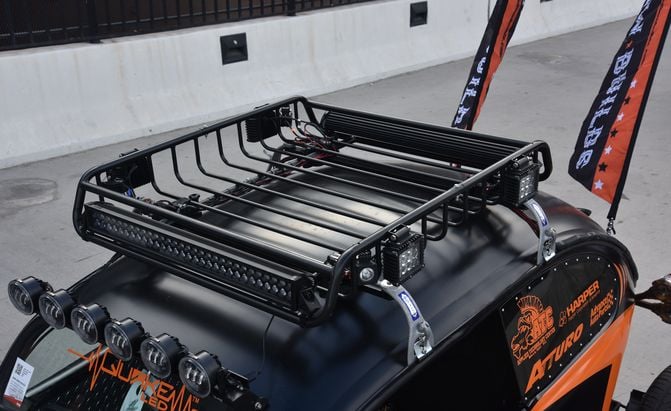
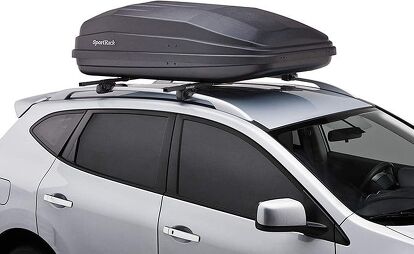


















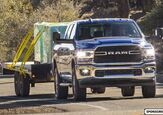










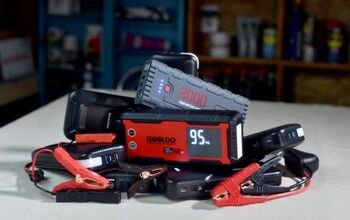
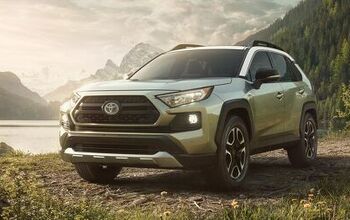
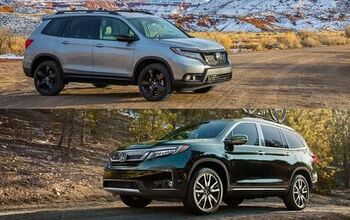
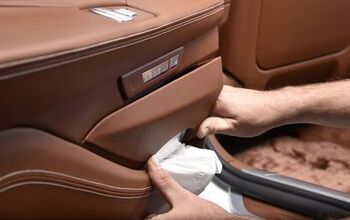
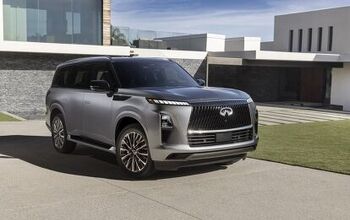


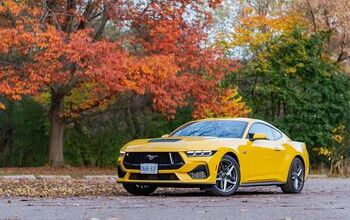

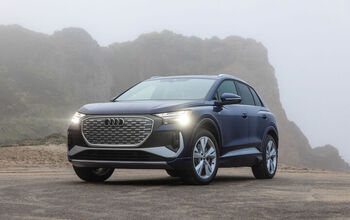

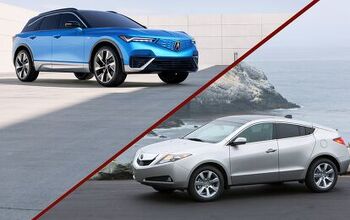
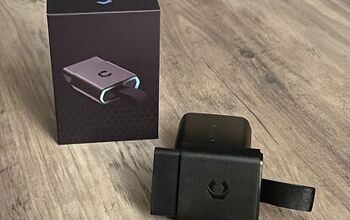
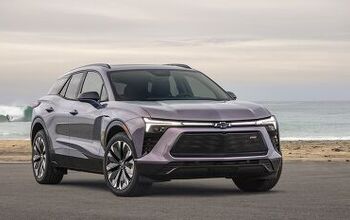

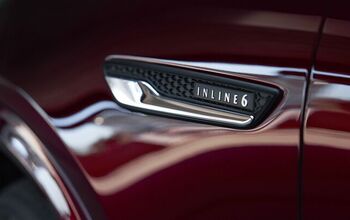
Comments
Join the conversation
I'm truly impressed by the level of detail you offer on your website. Your guides and reviews provide an excellent resource for those looking to make informed decisions. I would also like to contribute and ask you to visit Caterpillar Excavators for more info and items on used Caterpillar Excavators